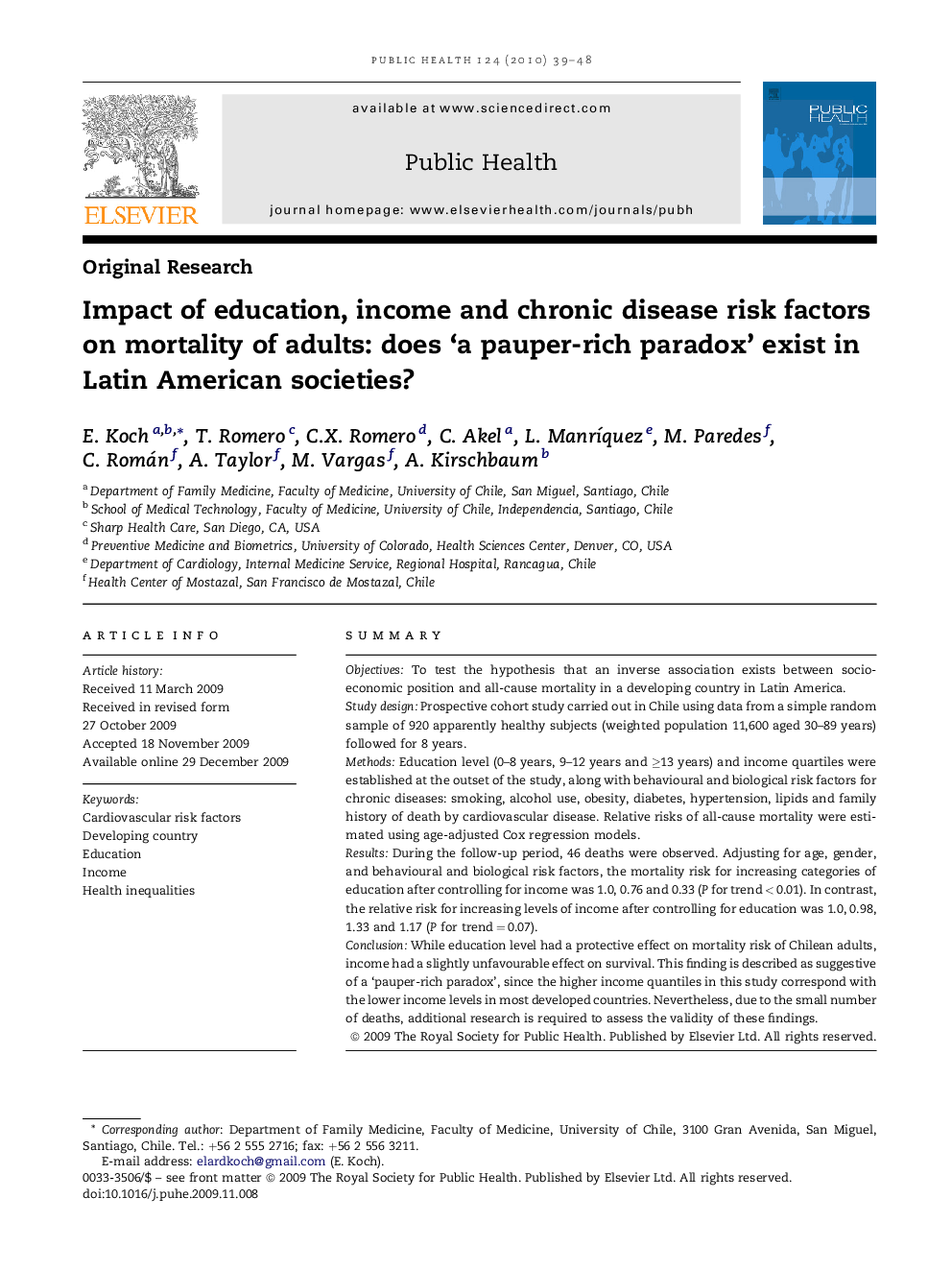| Article ID | Journal | Published Year | Pages | File Type |
|---|---|---|---|---|
| 1087946 | Public Health | 2010 | 10 Pages |
SummaryObjectivesTo test the hypothesis that an inverse association exists between socio-economic position and all-cause mortality in a developing country in Latin America.Study designProspective cohort study carried out in Chile using data from a simple random sample of 920 apparently healthy subjects (weighted population 11,600 aged 30–89 years) followed for 8 years.MethodsEducation level (0–8 years, 9–12 years and ≥13 years) and income quartiles were established at the outset of the study, along with behavioural and biological risk factors for chronic diseases: smoking, alcohol use, obesity, diabetes, hypertension, lipids and family history of death by cardiovascular disease. Relative risks of all-cause mortality were estimated using age-adjusted Cox regression models.ResultsDuring the follow-up period, 46 deaths were observed. Adjusting for age, gender, and behavioural and biological risk factors, the mortality risk for increasing categories of education after controlling for income was 1.0, 0.76 and 0.33 (P for trend < 0.01). In contrast, the relative risk for increasing levels of income after controlling for education was 1.0, 0.98, 1.33 and 1.17 (P for trend = 0.07).ConclusionWhile education level had a protective effect on mortality risk of Chilean adults, income had a slightly unfavourable effect on survival. This finding is described as suggestive of a ‘pauper-rich paradox’, since the higher income quantiles in this study correspond with the lower income levels in most developed countries. Nevertheless, due to the small number of deaths, additional research is required to assess the validity of these findings.
